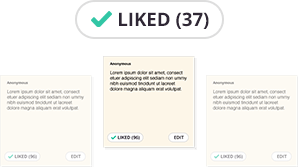
Candor: Definition, Synonyms & Usage Examples | A Great Dream Language School
What does Candor mean?
Candor’s Definition:
To be open and honest; sincerity of expression; open (openness); frank (frankness)
Candor, noun (US English) | Candour (British English)
How do you say Candor/Candour?
Pronunciation:
ˈkandə
Synonyms of Candor/Candour:
frankness, openness, honesty, candidness, truthfulness, sincerity, forthrightness, directness, lack of restraint, straightforwardness, plain-spokenness, plain dealing, plainness, calling a spade a spade, unreservedly, bluffness, bluntness, outspokenness;
Informal:
telling it like it is
Usage/Examples:
“She’s a lady of refreshing candour.”
Candour means honesty and frankness in expression, being direct, open and truthful in what you say, even when it might be uncomfortable or socially awkward to do so.
When someone describes this quality as refreshing they mean it’s pleasant or welcome because:
- It’s uncommon – Many people tend to be diplomatic, polite or evasive when speaking, so encountering someone who speaks plainly and honestly stands out
- It’s appreciated – The speaker values this directness because it cuts through social pretense and gets to the truth of matters
- It’s genuine – There’s no hidden agenda or manipulation behind what she says
So this phrase suggests the woman being described doesn’t sugarcoat things, doesn’t engage in small talk just to be polite and says what she really thinks. In a world where people often speak indirectly or diplomatically, her straightforward honesty feels like a breath of fresh air.
For example, if everyone else is politely saying a terrible movie was interesting, she might simply say “That was awful” and people find this directness refreshing rather than rude.
“He spoke with a degree of candour unusual in political life.”
This highlights how politicians typically speak carefully, using diplomatic language, to spin or evade/avoid controversy. When a politician shows unusual candour, they’re being surprisingly direct and honest, perhaps admitting mistakes, acknowledging unpopular truths or speaking without the usual political filtering. This directness stands out because it’s rare in politics.
“Minister Adel al-Jubeir, Johnson offered assurances of Britain’s friendship and stressed the importance of candor in their relationship.”
In diplomatic contexts, Johnson is emphasizing that honest, open communication should be the foundation of the UK-Saudi relationship. Rather than diplomatic pleasantries or hidden agendas, he’s advocating for straightforward dialogue where both parties can speak truthfully about their concerns, interests and positions even when those conversations might be difficult.
“She spoke with candor about the challenges she faced.”
This means she was open and honest about her difficulties rather than downplaying them, making excuses or presenting a overly positive facade. She acknowledged problems directly and truthfully, perhaps sharing uncomfortable details or admitting vulnerabilities that others might have kept private.
“His candor was appreciated during the feedback session.”
In a feedback situation, his honesty and directness was valued. Instead of giving vague, diplomatically worded criticism or empty praise, he provided clear, honest assessment. People appreciated getting genuine, useful feedback rather than polite but unhelpful comments, even if honest opinions are sometimes harder to accept or hear.
Produce More Ideas
Candor can generate more diverse or creative ideas because people don’t get fixated on the first idea that’s put on the table, avoiding the problems of idea anchoring and clustering.
In traditional brainstorming, the first idea put on the table often becomes a point of fixation.
Avoid Bias
People’s candid, unbiased views come to light because they generate ideas free of social pressure. Reviewing all the ideas at the beginning of the meeting gives everyone a voice, maximizing the creative potential in the room.
In traditional brainstorming, when a majority of the room supports an idea, people with different points-of-view rarely speak up.
Save Time
Candor is extremely efficient. Spend less time in meetings and more time getting things done. This is a far more efficient process to put a lot more ideas on the table. In traditional brainstorming, ideas are generated sequentially — a team might spend 10 minutes discussing the first idea before turning to the second.
HOW TO USE CANDOR
Candor works by decoupling the generation of ideas from the evaluation of ideas.
First, people generate ideas privately at the beginning of the meeting, before they learn the opinions of the other people in the room. Then the team reviews all the ideas generated before evaluating them.

Before the Meeting
- 1. Invite Your Team.
Send your question or problem to the members of your brainstorming team. - 2. Generate Ideas Privately.
Ask people to generate ideas before the meeting begins or devote the first 5 minutes of the meeting to generating ideas privately. - 3. Collect Submissions.
Have each individual submit his or her ideas to the session organizer through Candor.

During the Meeting
- 4. Put all the Ideas on the Table.
Use the Candor web app to project all the cards. Have each person briefly describe all the ideas they generated. It’s critical that at this stage people aren’t evaluating ideas, they are simply hearing all the ideas. - 5. Discuss all the ideas.
Now open up the discussion. Eliminate ideas that don’t stand up to scrutiny, modify existing ideas to make them better, cluster ideas into different categorizes, and add new ideas that emerge during the discussion. - 6. Vote on the ideas.
Use Candor to vote on the ideas. If a clear winner emerges, you can stop there. If a few ideas have strong support, you can now focus your discussion on the most popular ideas before voting again.

